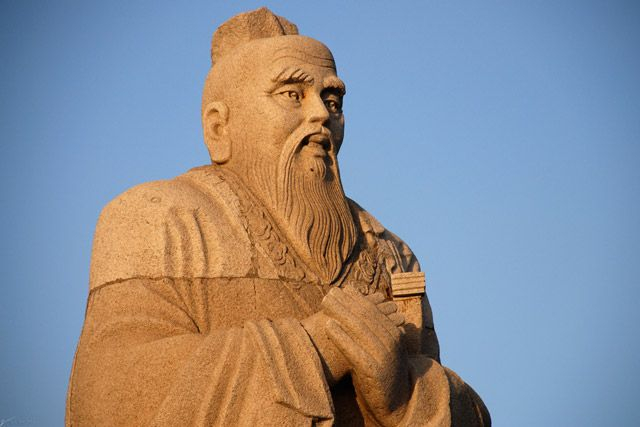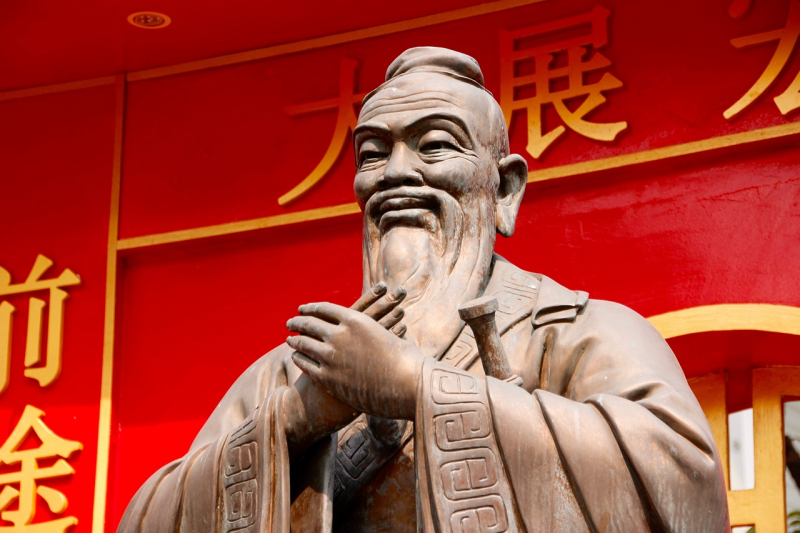Facts of Confucianism
Confucianism is, in fact, a religion, but not in the traditional sense. No direct religious institution was built to manage and dictate Confucianism followers for most of Chinese history (throughout the Medieval Era). Confucianism is more concerned with humanistic principles than with belief in spirits and gods. As a philosophy and belief system, Confucianism emphasizes tradition and an ethical strive for harmony on both personal and societal levels.
Confucianism may not sound like much of a religion at this point. However, as part of Confucianism's promotion of tradition, its adherents must engage in ancestral worship, rituals, sacrifice, and a belief in Tian, which translates as heaven.
Although Tian is associated with divinity, it is more commonly understood as an impersonal "oneness" with one's surroundings, a sense of order and harmony with the world, rather than a belief in a separate, immaterial realm. Tian is, in that sense, very different from the Abrahamic religion's (Judaism, Christianity, Islam) belief in heaven, but it is still very spiritual and religious.
Through a partial mistranslation, Christian Missionaries in China coined the term "Confucianism". When learning about Confucius, whose real name was Kong Fuzi, westerners adopted the philosopher's name pronunciation. (It makes more sense if you sound it out loud). Ruism was the name given to Kong Fuzi's teachings in China. In ancient China, the root character Ru meant scholar, learned, educated, and mold, among other things.












